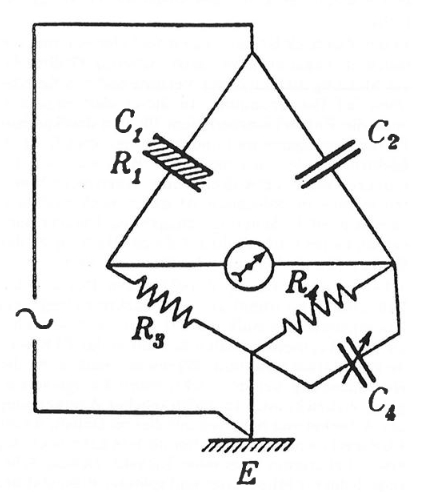|
Schering (surname)
Schering is a surname. Notable people with the surname include: *Ernst Christian Friedrich Schering (1824–1889 ), German founder of both Schering AG and Schering-Plough *Ernst Christian Julius Schering (1833–1897), German mathematician * Harald Schering (1880–1959), German physicist *Arnold Schering Arnold Schering (2 April 1877 in Breslau, German Empire – 7 March 1941 in Berlin) was a German musicologist. He grew up in Dresden as the son of an art publisher. He learned violin at the from which he graduated in 1896. Thereafter he studied ... (1877–1941), German musicologist {{surname, Schering German-language surnames ... [...More Info...] [...Related Items...] OR: [Wikipedia] [Google] [Baidu] |
Ernst Christian Friedrich Schering
Ernst Christian Friedrich Schering (31 May 1824 – 27 December 1889) was a German apothecary and industrialist who created the Schering Corporation. The company split into Schering AG and Schering-Plough after US assets were seized during World War II. Biography Schering was born on 31 May 1824 in Prenzlau. In 1851 he opened a pharmacy in Chausseestrasse, in the north of Berlin. He died on December 27, 1889, and was buried in the Protestant ''Friedhof III der Jerusalems- und Neuen Kirchengemeinde'' (Cemetery No. III of the congregations of Jerusalem's Church and New Church) in Berlin-Kreuzberg, south of Hallesches Tor The Hallesches Tor was located in today's Berlin district Kreuzberg south of Mehringplatz. Today, as a historic monument listed underground station on the site of the former gate bears the name ''Hallesches Tor''. It is a major transfer point f .... Legacy The Ernst Schering Prize is awarded annually in his honour by the Schering Foundation for outsta ... [...More Info...] [...Related Items...] OR: [Wikipedia] [Google] [Baidu] |
Ernst Christian Julius Schering
Ernst Christian Julius Schering (13 July 1833 – 2 November 1897) was a German mathematician. Early life and career Born in 1833 near Bleckede at the Elbe as the son of a forester, he attended Realschule ("Johanneum") in Lüneburg from 1845 to 1850, where he already showed a certain talent for mathematics. With the intention to engage in architectural engineering, he attended the Polytechnicum in Hannover from 1850 to 1852. At the University of Göttingen Following a fondness of mathematics and physics, in 1852, at the age of 19, he moved on to study in Göttingen, attending classes by Gauß, Weber, Dirichlet, Stern and Riemann. In 1857, he received a doctoral degree for his award-winning manuscript "Zur mathematischen Theorie electrischer Ströme" ("On the mathematical theory of electric currents"). In 1858, he habilitated based on his work "Über die conforme Abbildung des Ellipsoids auf der Ebene" ("On the conformal mapping of the ellipsoid on the plane"). After turning ... [...More Info...] [...Related Items...] OR: [Wikipedia] [Google] [Baidu] |
Harald Schering
Harald Ernst Malmsten Schering (November 25, 1880 – April 10, 1959) was a German physicist born in Göttingen. He is best known for his work in high voltage electricity and the Schering Bridge used in electrical engineering. Schering was the son of Ernst Schering, mathematician at the Göttingen Observatory. His mother came from a family of Swedish academics who worked with Ernst to translate works from French and Italian. Harald grew up with his two siblings in Göttingen and studied physics at the University of Göttingen. In 1903 he worked at the Geophysical Institute and obtained a Ph.D. in 1904 under Eduard Riecke with work on the Elster- Geitel dispersal apparatus. Beginning in 1905 he was a scientific assistant at the Physics and Technology Institute in Berlin Charlottenburg; today known as the Physikalisch-Technische Bundesanstalt (PTB). His work at the PTB under Emil Warburg primarily dealt with high voltage/high current research and development, and in 1914 he develop ... [...More Info...] [...Related Items...] OR: [Wikipedia] [Google] [Baidu] |
Arnold Schering
Arnold Schering (2 April 1877 in Breslau, German Empire – 7 March 1941 in Berlin) was a German musicologist. He grew up in Dresden as the son of an art publisher. He learned violin at the from which he graduated in 1896. Thereafter he studied violin at the Berlin School of Music under Joseph Joachim. From 1898 until 1902 he studied music in Berlin and Leipzig and wrote his dissertation on the instrumental concertos of Antonio Vivaldi (in German, ''Geschichte des Instrumentalkonzertes bei Antonio Vivaldi'') and this work was influential in resurrecting the music of this composer. Fred K. Prieberg: ''Handbuch Deutsche Musiker 1933–1945'', CD-Rom-Lexikon, Kiel 2004, pages 6.084–6.086. In 1907 he made his habilitation and was made a professor of music in 1915. In 1920 Schering gathered evidence that composer Johann Sebastian Bach usually used 12 singers in his cantatas and other vocal works. This insight eventually became influential in the early music movement. From 1928 onward ... [...More Info...] [...Related Items...] OR: [Wikipedia] [Google] [Baidu] |
